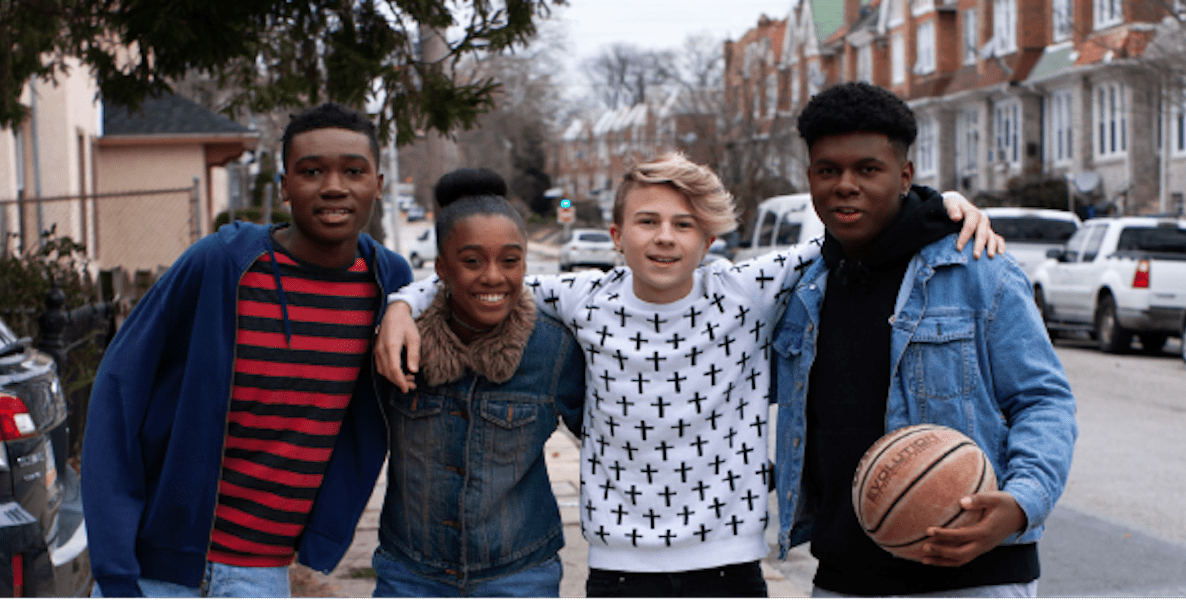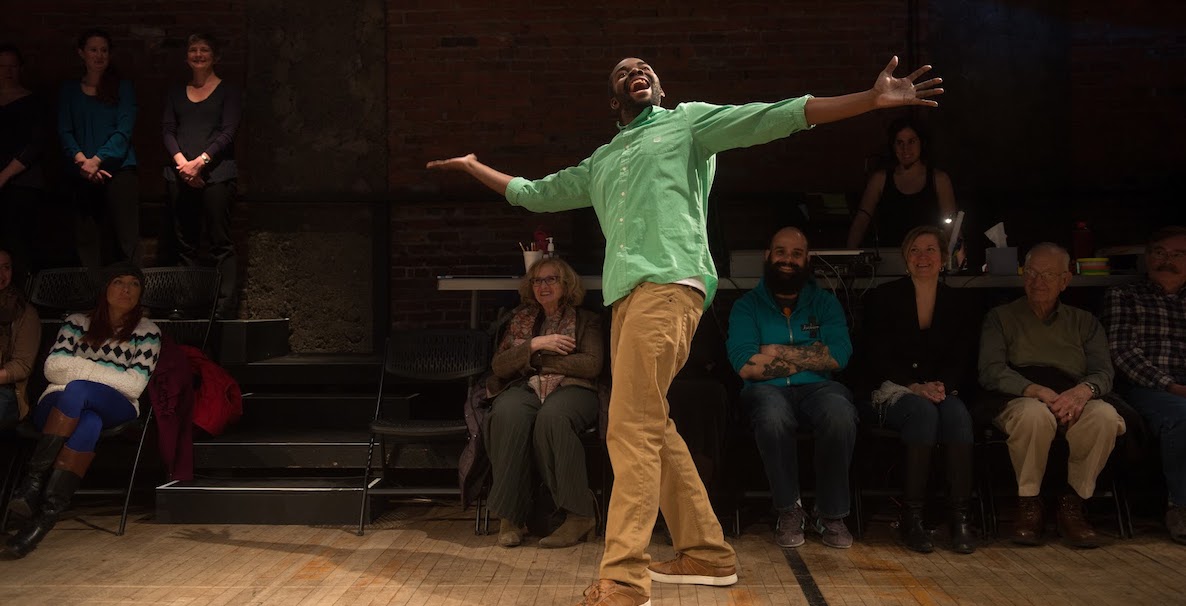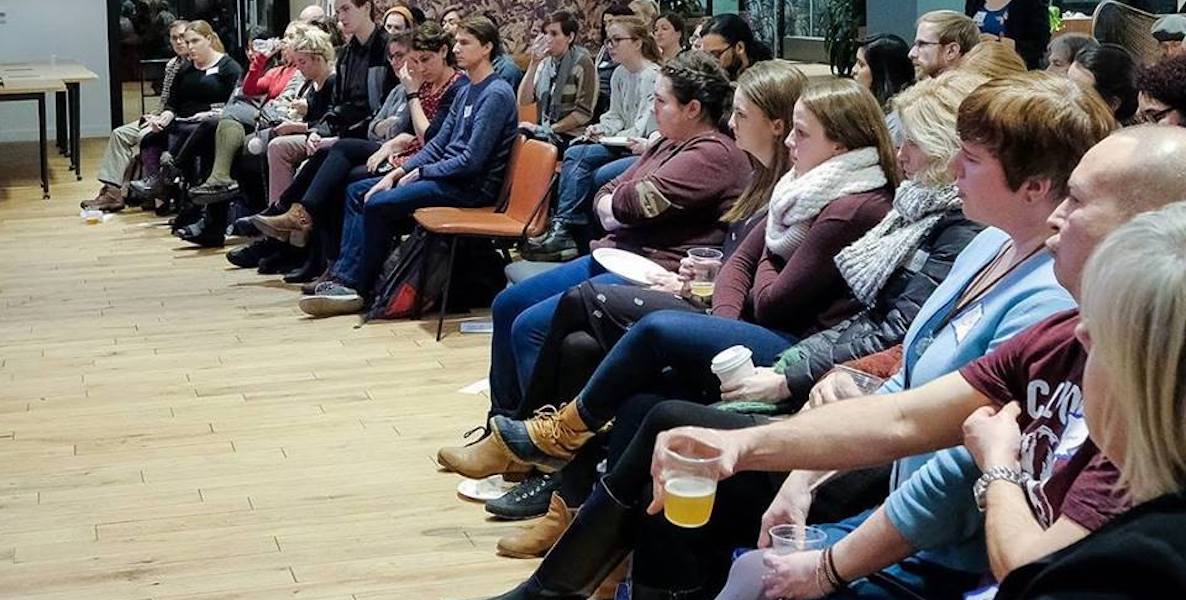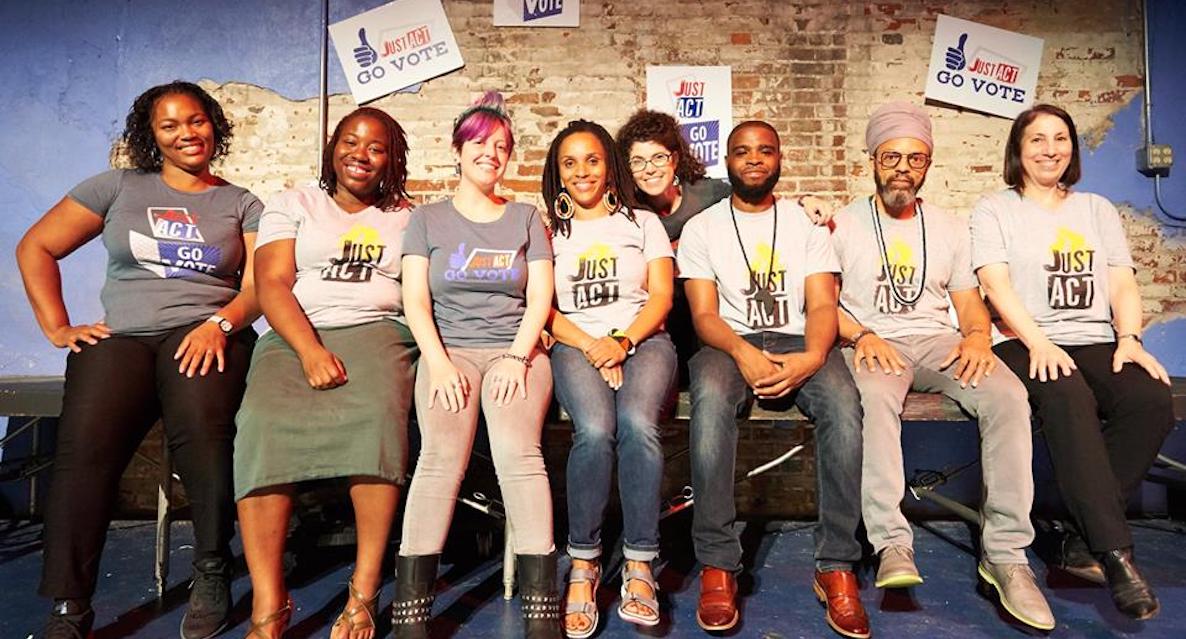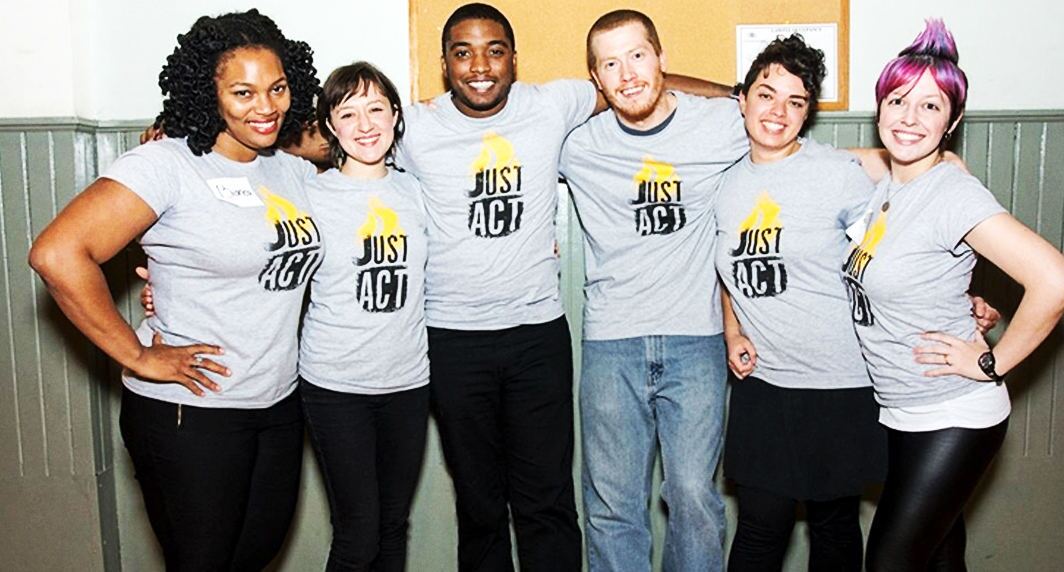Two co-workers meet at the office water cooler. One launches into a spiel about how excited he is to vote in the upcoming election, how eager he is for new candidates to make a change in Philadelphia.
His friend is more ambivalent. He posits an age-old skeptics’ question: If these elected officials really care, why do they only come around when they’re campaigning? Besides, he adds, he’s scared to put his job at risk by requesting time off to vote.
Their names? Rock TheVoter and Nope, the main players in Just Act, Go Vote 2.0, a new show from Just Act Theater Group, which has been performed at schools and other locations throughout last year’s mid-term election season and as recently as this week. Just Act’s creative director, Lisa Jo Epstein, hopes it inspires audience members to engage in thoughtful conversations long after they’ve left the performance.
![]()
“We’re not saying ‘Vote for this person or vote for that person,’ because the [ultimate] goal is to get people thinking: Why am I not voting? Why is my neighbor not voting? What are the root causes?” says Epstein. “And upon doing so and reflecting actively on that, it brings us back to ‘This is a reason to vote—because we are in this [current] situation because of who’s in office.’”
As with all of Just Act’s pieces, the audience is charged with becoming “spect-actors” instead of merely spectators. With this change in label comes what Epstein calls “the responsibility to act on the injustice that they see.”
After each performance, there is a dialogue between the performers and the spect-actors; audience members are encouraged to interrupt the performers, jump in themselves, and take on the role of Rock TheVoter, giving them an opportunity to practice a strategy with Nope that they could use when speaking to someone with whom they disagree—at the water cooler, the dinner table, or beyond. There is also a ‘Table Jam’, a conversation for attendees to reflect on the experience together. At this week’s show a representative from City Commissioner Lisa Deeley’s office even stopped by with a voting machine, to talk about the logistics of voting and find young people to volunteer to work to polls in the upcoming May primaries.
“Just Act doesn’t provide any answers—we’re the ones asking questions,” says Epstein. “The goal of this work is to say, ‘You all in the room, you’re the experts. But nobody has given you that space to recognize and embrace and mobilize it.’”
“We’re not saying ‘Vote for this person or vote for that person,’ because the [ultimate] goal is to get people thinking: Why am I not voting? Why is my neighbor not voting? What are the root causes?” says Epstein.
This type of audience immersion is a hallmark of a type of performance called Theatre of the Oppressed. Epstein met the Brazilian theater practitioner who created the movement, Augusto Boal, in 1990, after graduating from UT Austin with an MA and PhD in applied theater. She worked with Boal for three years at the Théâtre du Soleil in Paris, France; after then honing her craft as a Professor at Tulane University, the Lower Merion native returned to Philadelphia where she founded Gas & Electric Arts with her husband, David Brown.
![]()
“This form of theater creates and invites people to recognize their gifts, and mobilizes them in the pursuit of justice,” says Epstein. “The work that we do is not just about individual, personal transformation. It’s also about transforming patterns of action and thinking.”
Since launching in 2015, Just Act has staged over 15 performances tailored to different audiences. Last fall, they held a workshop about what it means to canvass as a white person in a neighborhood where the population is predominantly made up of people of color. Another workshop with JVES Human Services, a nonprofit that offers job-readiness and career training, focused on the impact of parents’ and elders’ attitudes on young people’s view of voting.
![]()
“In some regard, Just Act, Go Vote 2.0 is a living, breathing organism,” says Epstein. “Because depending [on] who the members of the ensemble and community are, the specifics of the injustices will change.”
This summer, Just Act will be launching a Just Act Institute for Theater of the Oppressed at their Germantown studio space, to teach theater informed by the technique.
“This internal transformation is vital to transforming our relationships with other people,” says Epstein. “When there’s […] a transformation from the inside of a group about how they treat each other, how they relate to larger institutions in which they work and live and move—then you’re talking about transforming structure inequality.”
Photo via Facebook


